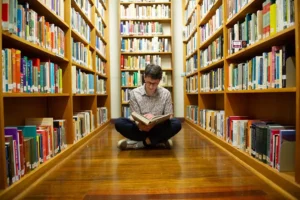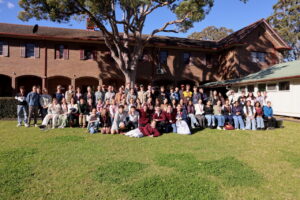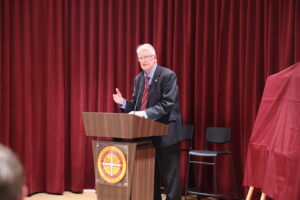Why Liberal Education Matters


History professor Steven Mintz has penned an excellent article for Inside Higher Ed on why humanities and liberal arts courses are increasingly dismissed by students entering university.
The University of Texas professor explains why it is a mistake that more and more tertiary students are choosing to major in STEM and business fields, in the pursuit of making money quickly:
If, for most students, the primary measure of an undergraduate degree is return on investment, shouldn’t our institutions double down on those high demand, high return fields and let the liberal arts shrink to an appropriate size?
I don’t think so.
The most distinctive feature of American higher education is the value it places on liberal education. Nor is this simply a legacy of a more elitist education in the past. Even as American colleges and universities broadened their curriculum during the 19th century, and embraced electives toward the end of that era, these institutions gradually and unevenly adopted gen ed requirements to ensure that all undergraduates achieved the rudiments of a liberal education.
Why did they do that? To ensure that all students acquired transferable soft skills? In part. To cultivate culturally literate graduates? In small measure. The primary purpose was more ambitious: to nurture a certain kind of person -- observant, reflective, sensitive, and thoughtful but also someone who is an independent thinker.
In his account of the Biblical story of Joseph and his sale into slavery by his brothers, Flavius Josephus, the Romano-Jewish historian, wrote that the captive’s Egyptian master “held him in all honor and gave him the education that befits a free man."
That phrase – “the education that befits a free man” -- has become a synonym for a liberal education – an education that combines breadth and depth, that cultivates a capacity to engage rigorously and critically with the major issues of the day, appreciate culture in its multiple manifestations, and serve as the essential foundation for informed citizenship.
It’s a broad, general, well-rounded education that liberates individuals from provinciality, narrow-mindedness, superstition, and insularity.
Although the article is written in an American context, in which the liberal arts is far more common, his words apply to the study of the humanities in Australia as well.
He further points out that, in many contexts, the theory of a liberal education is not replicated in practice:
Today, what normally passes for a liberal education resides largely within the curriculum’s lower division, and consists of an uneasy hybrid of somewhat discordant elements. It typically encompasses the social and the natural sciences as well as philosophy, literature, history, and the arts. It is defined and defended not on the basis of exposure to masterworks of art, literature, and music designed to give its recipients a touch of class, or to fluency in history, philosophy, and theology that makes someone appear cultured, but rather by the skills it purports to offer: critical thinking, moral and logical reasoning, historical, psychological, and sociological perspective, numeracy, cross-cultural awareness, and strong problem-solving and communication skills.
For all practical purposes, the liberal arts portion of the curriculum today does not assume that there is a corpus of texts or core issues that every undergraduate should encounter. Still, there’s an ongoing belief that every undergraduate should acquire the rudiments of a liberal education. This commitment raises a number of questions.
1. In theory, general education requirements are supposed to guarantee that all undergraduates receive a truly liberal, rounded, and robust education. But do they really?
Of course not. Most students meet such requirements through discipline-based survey courses, mainly at the introductory level. As conservative critics frequently point out, there’s typically nothing to insure that students are exposed to Shakespeare and the masterworks of literature, art, or music, to world history, or to major philosophers, political theorists, or theologians.Since these lower-division courses tend to be large, students also do not receive the kind of instruction and feedback that are essential to learning how to write well, speak eloquently, or formulate reasoned arguments backed by carefully evaluated evidence.
2. Should we be concerned If most undergraduates do not receive that kind of a liberal education?
If one believes the primary purpose of a liberal education is to ensure that students acquire certain cultural literacies and certain cultural dispositions (such as a refined sensibility, aesthetic taste, a capacity for connoisseurship, and an ability to formulate and evaluate historical analogies, and to make careful aesthetic and moral discriminations and judgments), then it’s obvious that most undergraduates only receive a rather crude copy or simulacrum of a liberal education.Enriching a student’s psychological, moral, and emotional interior by exposing them to the products of great human minds is not a goal of the kind of liberal education that undergraduates typically receive.
But if one feels that the prime purpose of a liberal education in the 21st century is expose undergraduates to topics, methods, interpretive frameworks, and skills that tend to reside at the margins of the more practical or applied disciplines – such as mathematical or historical or sociological or psychological thinking, literary or artistic analysis, or the scientific method – then the current approach, with its emphasis on maximizing students’ options, is more justifiable.
3. Was John Dewey right: Is liberal education in practice, if not in theory, class and culture bound, backward looking, and excessively abstract?
At its best, a liberal education inducts its recipients into what the Enlightenment called the Republic of Letters, a community of independent thinkers and an international network that embraces those who are interested in the arts, the humanities, and the sciences. It cultivates an educated, literate class in dialogue with writers, thinkers, and artists past and present, domestic and foreign, and of all cultures.As the religious scholar Matthew Rose, puts it, a liberal education makes our students members of what “the Czech dissident Vaclav Benda called a ‘parallel polis,’ a community of free thought existing apart from broad political support.” It offers leaven for the soul.
4. Should the champions of a liberal education defend it on instrumental grounds – that it provides the kind of transferable soft skills necessary in a volatile society -- or on some other basis?
Certainly, a liberal education, like I suspect education in any field, has practical benefits. According to the pundit Fareed Zakaria, it’s value lies in its ability to teach them “to read critically, analyze data, and formulate ideas,” making them more nimble and adaptable in an unforgiving economy.But, of course, liberal education’s real purpose lies elsewhere: It, in the words of the classicist Barry Strauss gives its recipients “the tools to challenge the dogmas and unspoken assumptions of [their] age, “ and “to think broadly and creatively.”
As Australia's first Liberal Arts institution, Campion College strives to embody the principles of education championed by St John Henry Newman.
By integrating the disciplines of history, philosophy, theology, literature, the sciences and classical languages into a cohesive and chronological structure, Campion aims to imbue in its students the virtues of a liberal education, as described here by Prof. Mintz.



